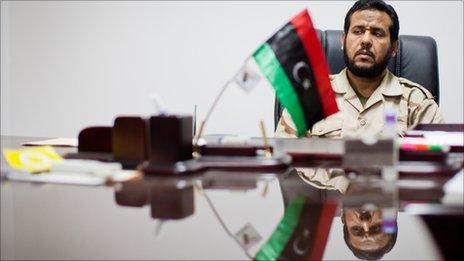Abdul-Hakim Belhaj torture case against UK rejected
- Published
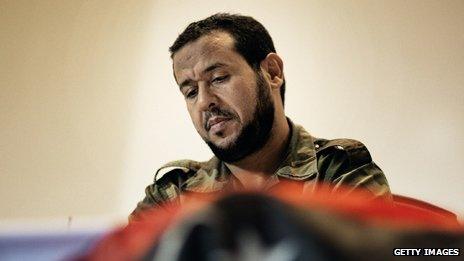
Mr Belhaj was the leader of an Islamist group which fought the Gaddafi regime
A tortured Libyan man's bid to sue the UK government for allegedly colluding in his rendition cannot be settled in a UK court, the High Court rules.
The judge said Abdul-Hakim Belhaj had a "well-founded claim" but pursuing it would jeopardise national security.
Mr Belhaj says that, in 2004, the UK helped the US to arrange his rendition from China to Libya, where he says he was tortured.
Mr Belhaj, speaking from Tripoli, said he would "continue to seek the truth".
His solicitor, Sapna Malik, said Mr Belhaj would try to appeal against the decision.
Mr Belhaj, the former leader of an Islamist group which fought the Gaddafi regime, says he was abducted - along with his pregnant wife - in China in 2004 as he was about to fly to London to claim asylum.
He says the UK had tipped off Libya before helping the US to arrange his rendition.
'Non-justiciable'
Then-Labour home secretary Jack Straw has denied being aware of the rendition and allowing it to happen.
Mr Belhaj has been attempting to sue Mr Straw, former senior MI6 official Sir Mark Allen, the security services and the Foreign Office.
Mr Justice Simon said that because most of the claims related to officials in China, Malaysia, Thailand and Libya they were "non-justiciable" in the UK.
But the judge said there appeared to be a "potentially well-founded claim that the UK authorities were directly implicated in the extra-ordinary rendition of the claimants."
Mr Belhaj said in a statement the judge "was obviously horrified by what happened to my wife and I".
"But he thought the law stopped him hearing our case because it might embarrass the Americans," he added.
"I believe that the British justice system, which I admire greatly, is better than that."
Ms Malik, at solicitors Leigh Day, said: "If this judgement stands, it will mean that anything our security services do alongside the US government is totally immune from the British legal system, even if MI6 officers arrange the rendition of a pregnant woman into the arms of Gaddafi."
Amnesty International's John Dalhuisen said it was "an extremely disappointing decision".
"Avenues of investigation and redress are being closed down rapidly, despite these being incredibly serious allegations about UK officials' involvement in torture and other ill-treatment," he said.
"We're increasingly concerned that there's never going to be any genuine accountability for the UK's involvement in torture and other ill-treatment overseas."
'Black site'
At a three-day High Court hearing in October, Mr Belhaj's lawyers said faxes were sent in March 2004 from MI6 to its counterparts in Tripoli detailing his whereabouts after he and his wife had been deported from China to Malaysia.
The couple were initially held in Kuala Lumpur before being told they would be put on a flight to the UK, via Bangkok.
But the High Court was told the flight was organised to ensure the pair ended up in a secret CIA "black site" prison in Thailand, before being flown on to Tripoli.
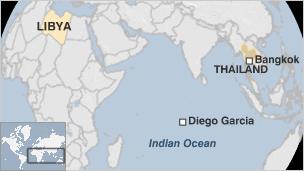
Mr Belhaj, a politician who leads his own The Nation party, says that in Bangkok they were detained by American intelligence and he was tortured while his pregnant wife was chained to a wall.
It is also alleged the flight from Thailand to Libya was allowed to refuel at the British Indian Ocean territory of Diego Garcia.
When they got to Tripoli, Mr Belhaj spent six years in jail while his wife was released shortly before giving birth, he says.
The judgement comes a day after an inquiry revealed there was evidence Britain was inappropriately involved in the rendition and ill-treatment of terror suspects.
Retired judge Sir Peter Gibson reviewed 20,000 top secret documents after allegations of wrongdoing by MI5 and MI6 officers in the wake of 9/11.
He found no evidence officers were directly involved in the torture or rendition of suspects but said further investigation was needed into evidence of complicity.
- Published21 October 2013
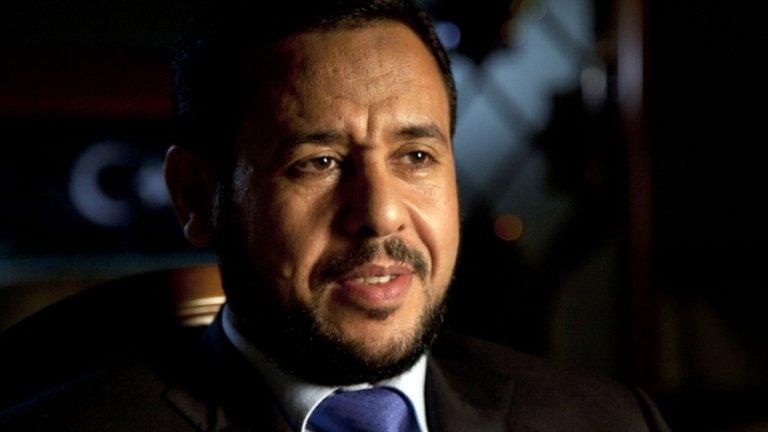
- Published10 May 2018
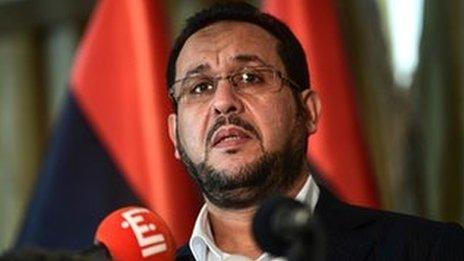
- Published21 May 2013
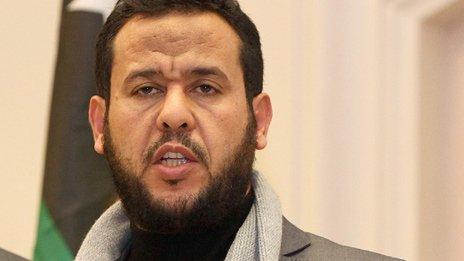
- Published4 March 2013

- Published4 March 2013
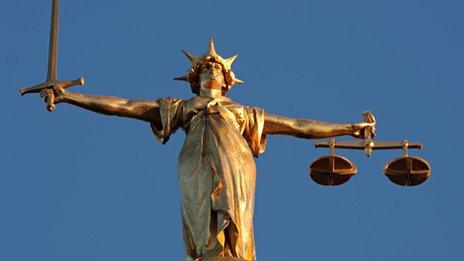
- Published15 May 2012
